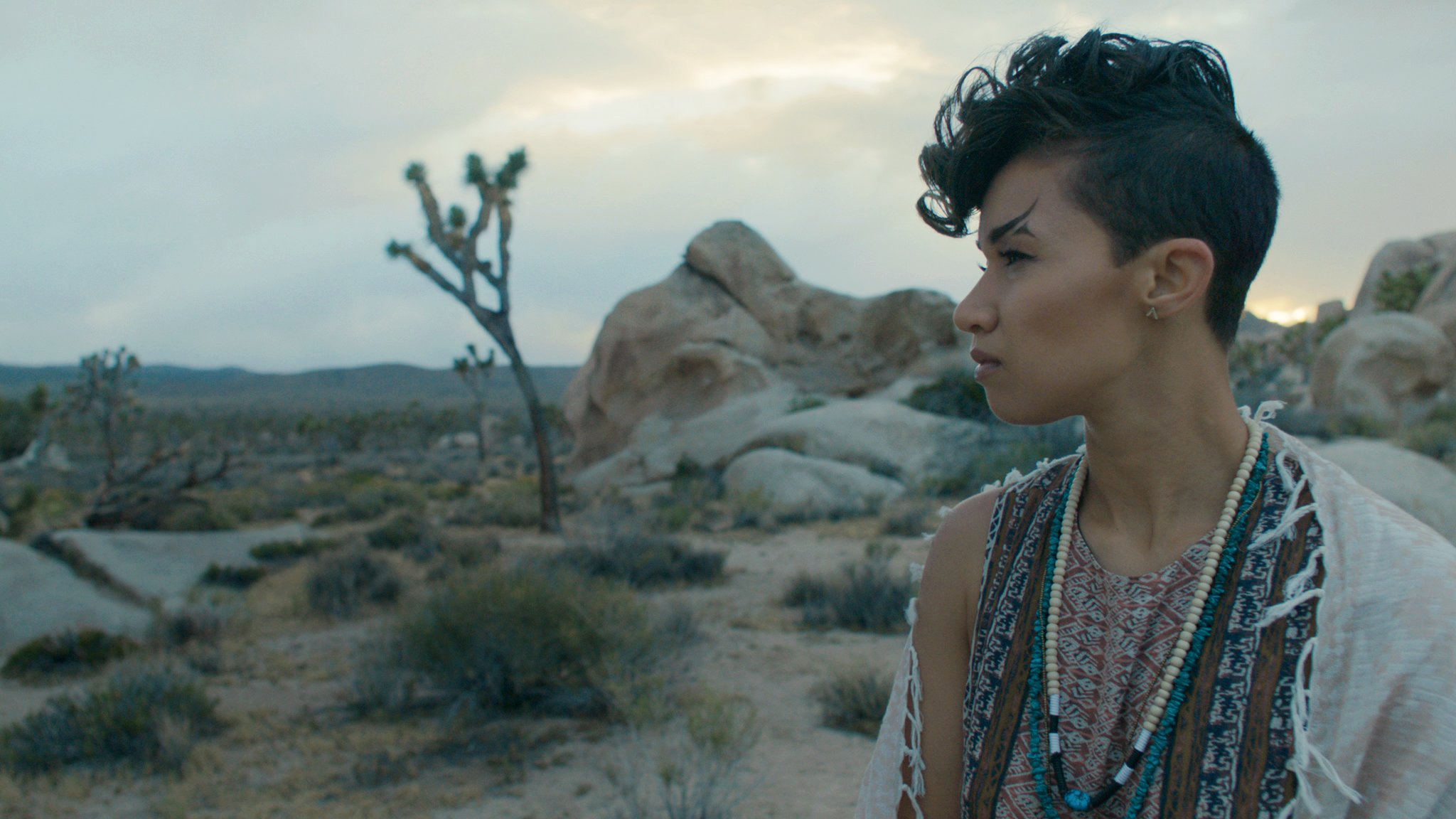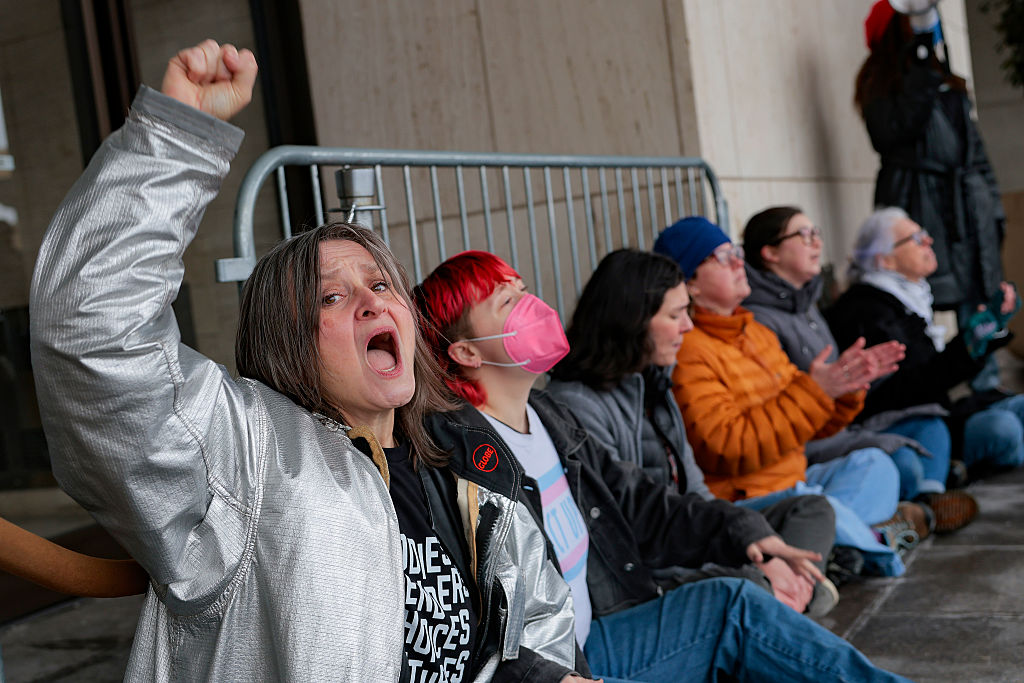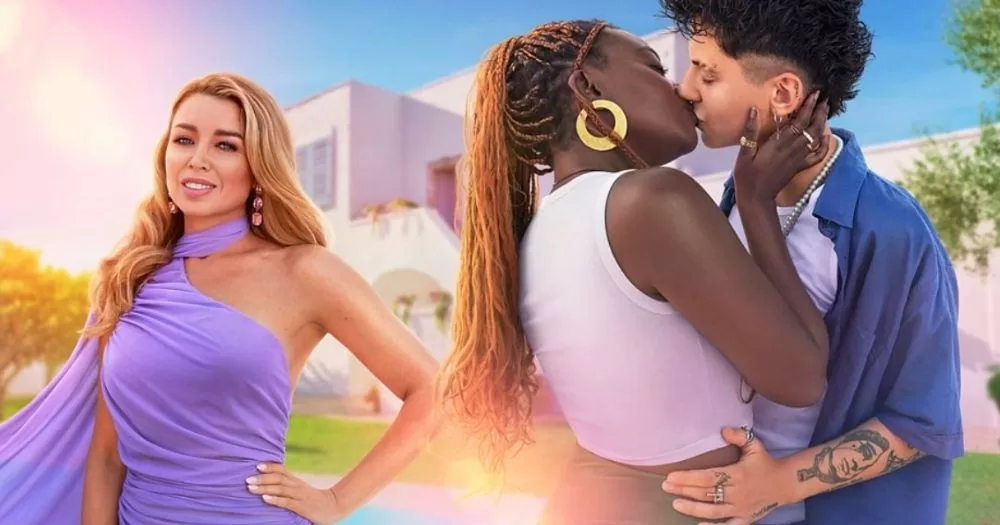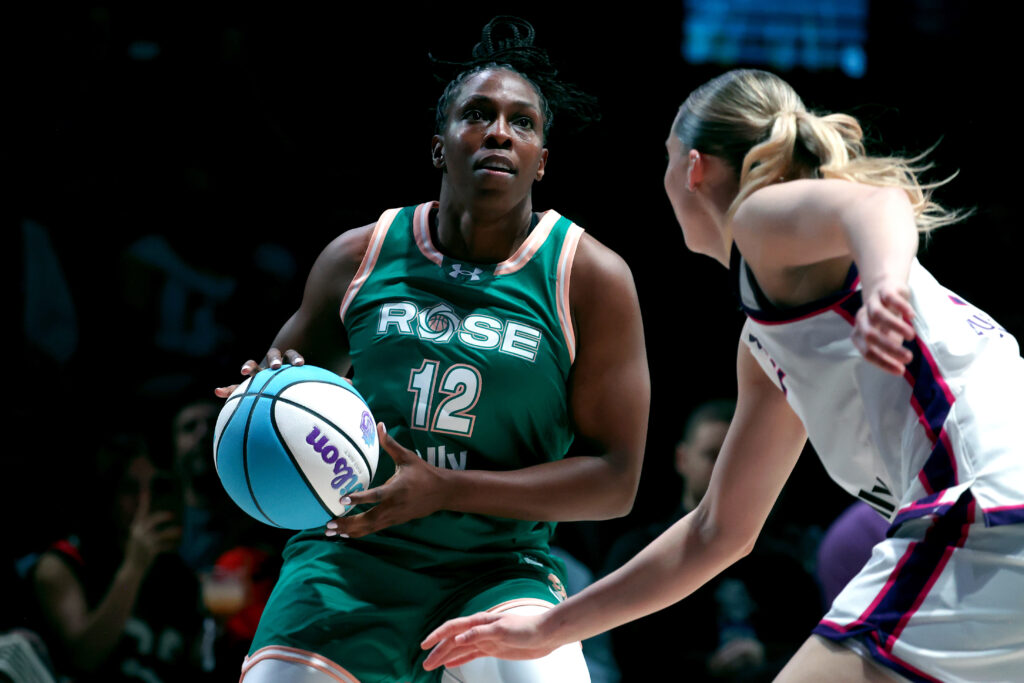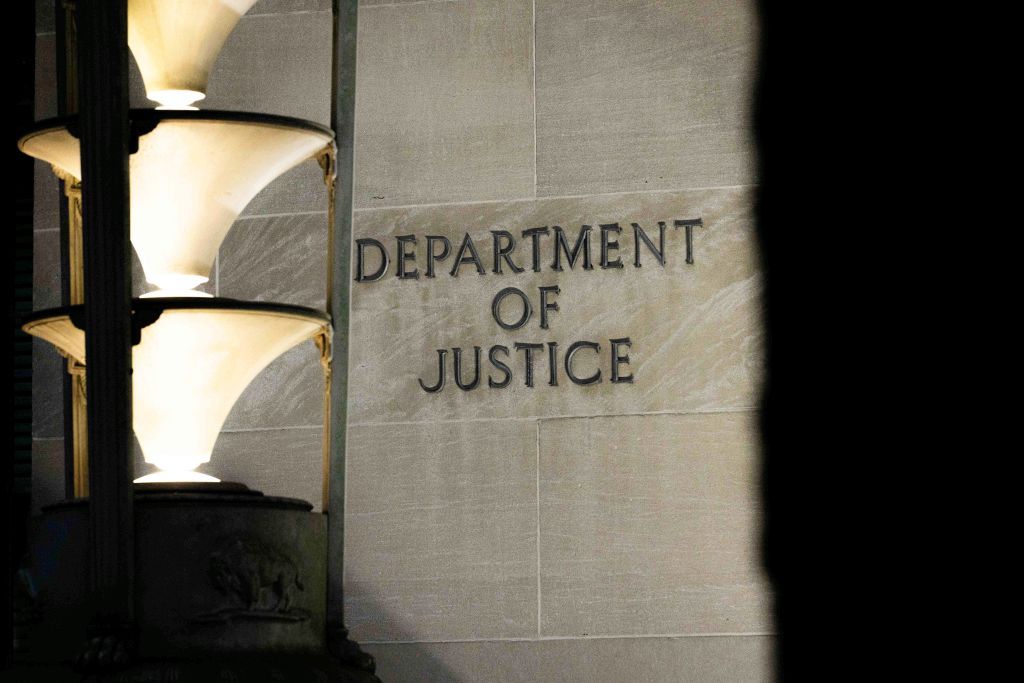Butterscotch Melts the Mic
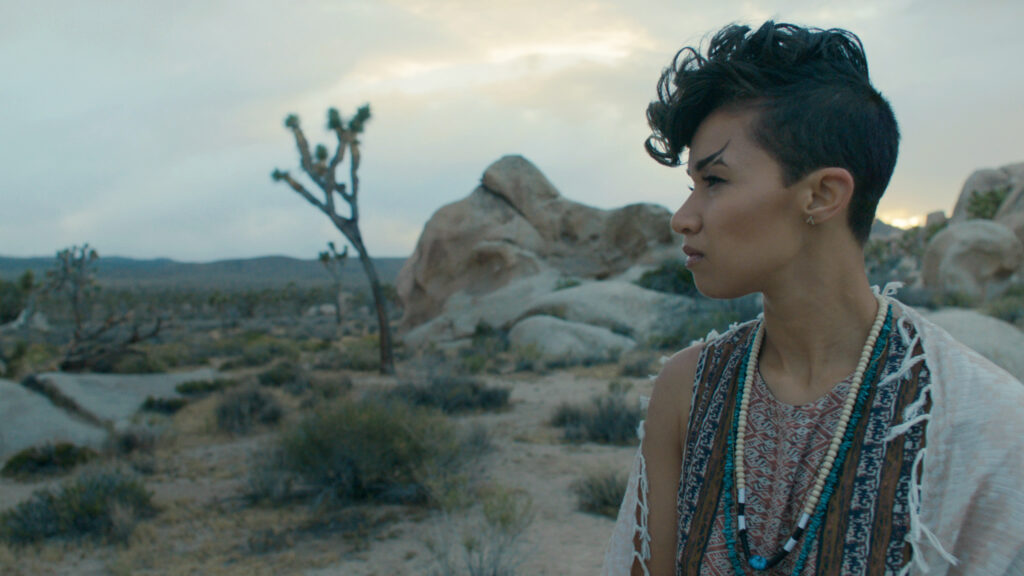
Multitalented beatbox champion and recently out, all-around musical wunderkind, Butterscotch, is breaking down barriers with her new EP and single, “Accept Who I Am,” which tackles issues of social justice, racism and identity—proving that “a woman’s place” is anywhere she wants to go.
Like the best artists, vocal percussionist virtuoso and “one-woman symphony” Butterscotch refuses to play into the music industry’s increasingly shallow and sexist standards, demanding respect on the basis of her undeniable talent, authenticity and individuality.
“Accept Who I Am,” the headstrong song off her latest EP, “The Scotch Tapes, Vol.2,” delivers a dizzying mix of rapid-fire rap and sultry, dreamy alt-rock (think Zero 7 with a chaser of blues and hip hop), served up with a powerful message about being true to oneself, and a fervent plea for society to let her live as she sees fit.
She is also the world’s first female beatboxing champion, a skill in which the singer vocally mimics percussive musical instruments and electronic sounds; but in Butterscotch’s case, she also “plays” the trumpet.
You can revel in her doing just that on versions of the jazz standard “Summertime” and Roberta Flack’s “Killing Me Softly,” the latter of which she performs alongside Wyclef Jean, who famously remade the song with his band, The Fugees. Her voice sounds so much like whatever instrument she chooses to invoke that you can barely believe the sound is coming out of a person’s mouth. Meanwhile, in Earth Wind & Fire’s “September” and Sade’s “Cherish the Day,” she makes her mark in the neo-soul movement’s revival, bringing to mind a younger Corinne Bailey Rae. She’s also paid tribute to the late, great Prince on YouTube, with a Billie Holiday-esque version of “Nothing Compares 2 U,” in which her voice sweetly soars and her guitar weeps warm, jazzy chord progressions.
In 2007, on “America’s Got Talent,” Butterscotch became a finalist, funking up and bluesifying Donna Summer’s disco hit “Love to Love You Baby,” and delivering a version of “Summertime” that modernized the original while remaining loyal to it. Contest judge Piers Morgan gave her the highest praise, calling her “the best we’ve ever seen.”
She’s climbing musical mountains at rapid speed, performing with the likes of Earth, Wind & Fire, Nile Rodgers, Peeping Tom and KRS-One, to name a few. Highlights include her opening for Tony Bennett and Stevie Wonder, rare honors for such a young artist. Not content to just sit back and enjoy her success, she teaches others the art of beatboxing at colleges, high schools and even elementary schools, helping the next generation find their own voices.
In this GO exclusive, we talked to Butterscotch about how she began, her musical influences, coming out, social justice, her girlfriend (yes, she’s taken, ladies), and her big plans for the future.

GO: How did you come to have the stage name Butterscotch?
B: It was actually back in summer school and in chemistry class. I started singing this song about butterscotch [laughs]. I told my friends I was going to write some crazy songs and I came back to school with this punk song. The chorus just says, “butterscotch, butterscotch, butterscotch.” And people loved it. When you’re younger, you’re always searching for a name to call yourself musically. And this one kind of just found me. It stuck.
GO: You have a really diverse background. Can you tell us a bit about it?
B: Well, my mom’s white and my dad is black. But of course they have different European backgrounds, as well as Native American, and I just recently found out I’m part Asian, as well.
GO: Where did you grow up?
B: I grew up in Davis, California. Right near Sacramento. Small town. I grew up playing classical piano. My mom’s a piano teacher. So there was always music surrounding me. My mom didn’t really let us watch too much TV, so whenever I got bored I’d just pick up instruments laying around. My sister played the trumpet, cello. My other sister played clarinet. My brother also play trumpet and my other sister played trombone. So a pretty musical family. I never really got bored because I just always had musical instruments to occupy me.
I went to the schools in Davis and then I went to performing arts school in Sacramento. And then I went to Sacramento State for a couple of years. By then, I was just so involved with music that I left to go on tour. Then, in 2005, I was the female beatbox champion of the world. And then in 2007 I was West Coast Beatbox Champion, beating all guys.
GO: Was it diverse in Davis?
B: There was maybe one other black kid at my school. So whenever we would talk about African-American history in class they’d always just look at me. And I was the token black kid. I remember when I had my first mixed friend, she automatically was my best friend, because we just totally understood each other on so many levels. I was always good friends with people, but someone who understood me at a multicultural level was just really cool. I think I was in like 4th or 5th grade.
GO: How did you get started beatboxing?
B: I started beatboxing towards the end of high school. There was this amazing new kid who was a beatboxer. And I’d always heard about beatboxing on TV. Heard all kinds of different hip-hop albums, but to see it live, that was just… It was insane. So I picked up a few things from him, and then I’d play guitar and I started singing in high school. So I just started putting everything together and developed my own style of jazz and hip-hop and beatboxing.
My mom was always listening to classical music. So I had that ever since I was in the womb, basically. I grew up listening to Beethoven. But my dad would always listen to Motown. And then, being the youngest of five kids, I was influenced by what my siblings listened to. Like hip-hop and MTV.
In my angry teenage years I listened to a lot of rock. That was a good outlet. And my grandparents would listen to jazz whenever I would go visit them in New York.
When I went to Sacramento State, I knew I would do something with music, but I wasn’t sure exactly what, so I just started doing classical piano. I did classical piano there and then, with beatboxing at the same time, and I started singing with the vocal jazz group as well as beatboxing. And then I started doing the beatboxing competitions.
GO: I know you go to schools and do workshops and that you were on MTV’s Made [as a beatbox mentor]. Do you see yourself as a role model for aspiring musicians or young gay women of color?
B: Yeah, I would like to. I just love going to schools because they’re just so ready to soak up the information. And I think because I do look a lot younger than I am, I feel like they trust me. Because I think sometimes people will come in and tell them, “Follow your dreams, you can do anything,” and they’re like, “Yeah, sure.”
GO: Can you give me an example of a typical workshop?
B: Sometimes I’ll give presentations or performances where I talk a little bit and perform, then I’ll teach. If I’m giving strictly a beatbox workshop, then I’ll show a little bit of what I can do and then I’ll break it down to the different sounds. And then have them repeat and I’ll show them the mic technique, on how to hold the microphone when you’re beatboxing…because how you position the microphone is extremely important to emitting different sounds. And most of the time when I do workshops, all the boys, they’re excited to do it. But the girls, at first, they don’t want to do it. But the best feeling is when one of the girls will grab the mic and then she’ll just kill it. And she didn’t even know she had that in her. And it’ll be like the best. Better than the boys, better than anyone in the class. And then, you can see her face light up, like, “Wow, I didn’t know I could do that.”
GO: That must be really rewarding.
B: Yeah, it doesn’t just stop at beatboxing. You see that they realize that they can do more in life.

GO: We’ve been watching your new video here for “Accept Who I Am.” It’s really powerful. Can you tell me a little bit about the inspiration?
B: I actually wrote this song about a year ago and I was just going through a lot of things and just reflecting on life. I think it was actually around the time of some police brutality that was captured online… and then there was this experience I had while I was in Europe.
There’s this event called Black Pete, where they paint their faces in blackface. So I got into a heated argument with someone about the topic and had to educate them on how it’s very offensive to African-Americans because of the history of blackface. And so when I was on the plane back home, I was still heated from this argument and I started to reflect on my experiences, on not just being biracial but being gay in the music industry. I came up with this beat and started writing and it just was flowing. It was like therapy for everything that I’ve gone through in my past. And so the song is about suffering from depression, being suicidal when I was a teen, getting through that, and then once I began to realize who I was and love myself, I still felt oppressed by society and by the music industry. And I was writing about that and then the third verse is about how we can kind of all come together and stop the bullshit. We need to remember that we’re not so different, and just love and accept everyone.
GO: Do you think that you speak from a position of being a woman of color often in your music? Does that factor into your art frequently?
B: I mean, a lot of what I write about are my experiences. I also go back to different schools when I’m in my hometown. If I’m on tour I like to go visit inner city schools. [Kids] can follow their dreams. Anything is possible. And so I’ve been kind of on that tip lately of just writing things that are inspirational. It’s not like, intentionally a reminder to everyone; a lot of it is more writing to myself. To remind myself to keep going.
You know, no one’s perfect of course, but I don’t think we can or should get mad at people if they mess up. Everyone’s human. Obviously, politics are corrupt. Musicians and artists, we’re the ones who really can make a difference because people aren’t listening to CNN every day. They’re listening to their iPods and iTunes.
GO: Tensions seem at kind of a historic high right now after these shootings with the police and Orlando. Are you involved in Black Lives Matter or affiliated movements? Or do you contribute in your own way and your own terms?
B: I would love to get involved more. I am posting as much as I can. And writing music and getting my words out there. I would love to do more or different shows, benefit concerts that help either families or just raise more awareness. Yesterday I was flying and on JetBlue they have the TVs. They had this conversation and I guess it was like a Town Hall meeting or something like that, where it was an open discussion, [and] I was thinking, “This is helping.” I think there should be more of that. Because a lot of these cops, they don’t understand what black men go through specifically. People will also try to defend America and say, “It’s great and there’s no racism,” as if black people are always trying to make everything a big deal. But then if you say, “Hey, do you want to be black? You want to have the black experience?’ I think most of them would say, “Hell, no!”

GO: You came out publicly pretty recently, on Facebook. What was that journey like for you?
B: I mean, I’ve said some gay stuff occasionally [laughs]. I’ll comment on how beautiful a woman is or something. But I guess I had previously never really said, “Hey, I’m gay.” But, after the event in Orlando a couple of weeks ago, it seems that there’s so much hate that people are afraid to state who they are and what they believe in. And I was just like, “Man, fuck it. I need to empower myself so I can help empower others to not be scared.” So I guess that was what resulted in the public declaration.
GO: Did you always know you were gay? Or was it a gradual process?
B: It was more gradual, yeah. Looking back to the younger years I think to myself, ‘Wow, how did I not know?’ It was so obvious. Like, why am I always the one who’s asking out guys?
GO: And has your family always known? Were they supportive?
B: I think each family member found out gradually. But it’s pretty obvious! [laughs] But I feel like none of them would ever have an issue. So it wasn’t like I had to like standup at Thanksgiving and be like, “Hey everyone I have something to say!”
GO: Did your fans respond positively when you came out?
B: Yeah, it’s pretty crazy because I think maybe in my past I have honestly been a little fearful of posting stuff like that. And because as an artist and musician, especially in today’s day, social media and followers are everything. You want to get signed by a [major] label or indie label or get pitched for a commercial or booked for a show. [And they want to know]: What are your social media numbers? It’s important for all of us to have high numbers. So you definitely don’t want to risk losing people.
But if people are listening to me, then I have to tell them what I’m thinking and how we can make a difference and how it can change. No matter what.
I’ve always been true to myself. And so I posted it because I was just so angry. I was sad. It was the same weekend I lost my aunt. It was just very, very heavy. And I was just like, “I’m going to post this. I don’t care.” It’s actually the most-liked photo and post [on my social media]. I think it garnered maybe 950 likes or something? I haven’t checked it lately. It might be up to 1000. And like 100-plus shares on it. And I also gained more followers. So being honest and being myself propelled me in a new direction. In a higher direction.
GO: You actually touched on something that I was going to ask you. There are so few breakout artists who are openly gay. It seems like it’s been positive in your experience, but do you think that it’s still somewhat of a hindrance for mainstream success?
B: I don’t know. I’ve been in this business for 10 years and people are constantly trying to push you down. They may be trying to help, but the way that they are…it’s controlling. A few years ago when I wanted to cut my hair, they said, “Don’t cut your hair. Get a fake boyfriend. Be more feminine, wear this.” And this past year of showing my music to a lot of people in the industry, they’ve said, “No, don’t release it. Don’t do this. You’re gonna mess up like this.” It’s just like 20 different voices at any given moment.
But you know what? I don’t care anymore. I want to live my life. I want to be happy. I want to spread this message of positivity and self-acceptance and love, and I feel no one is promised the next day. If there’s something that needs to be said, I have to say it. Because I don’t know how long I’m going to be here.
GO: What advice would you give to women slightly younger than yourself, rising artists, in either the LGBT community or the black community or all of the above? What do you think is the most important thing to keep in mind as you’re trying to establish yourself?
B: I think find what makes you happy. Find what makes you unique. And really focus on those talents because those are what’re going to set you apart. In any industry. And then find a way to make money off of it. Use social media as much as you can. I wish, after “America’s Got Talent,” I was more involved. That’s probably my only regret. I wish I took advantage of social media more.
GO: Are you seeing anyone special right now?
B: Yeah, I am seeing someone right now. It’s definitely been difficult in the past because my schedule is so hectic. But I don’t want to deprive myself of something that’s special.
GO: You’ve said that you can be shy. It seems that it would take so much courage to get up and beatbox or sing or play and do what you do. Do you feel like your shyness kind of just melts away when you perform? How do you navigate being shy as a performer?
B: I always say I’m not antisocial, I’m pro-solitude [laughs]. But when I’m on stage, I’m a different animal. It’s warrior mode where I just stand in it, I’m in the zone, I love what I’m doing. It just takes away all the troubles of the day and I know that I’m able to facilitate taking other people on a journey, too. It’s just a magical place that transforms you.
GO: So, “America’s Got Talent.” That’s some pretty massive exposure. What were the pros and cons of achieving that level of publicity?
B: I think most of it was positive. It was very intense and stressful at times, but I realized how much I could do and that I actually had a chance to win. And I was on the biggest platform in America, which was crazy. It’s been a roller coaster since because for the next couple years after I just, I didn’t have great management. And I lost a little bit of valuable time, but I was able to work with a few people who wanted to help out. And they connected me with jazz legends and so I was able to get on their projects and do a few shows with them. Credibility in the music world is good.
GO: Who do you consider your biggest musical influences?
B: My favorites are Erykah Badu, Sade, Jill Scott. But I also love Aretha Franklin, Ella Fitzgerald, Billie Holiday. Earth, Wind and Fire is my favorite group of all time. I love all their music. You can’t listen to Earth, Wind and Fire and be sad. Their music is so uplifting.
GO: You’ve shared the stage with quite a few luminaries. Of all your collaborations, which do you think you got the most out of as a performer?
B: The first one that kind of propelled me was Peeping Tom. Mike Patton. He gave me the experience of a lifetime. It was my first tour ever and I was singing and beatboxing back-up, and he was so gracious to give me five to 10 minutes of a solo set during the performance. So we’d perform three or four songs together as a band. And then he’d introduce me and then I’d just beatbox and…he introduced me to a platform of two thousand-plus people every night. It was amazing and he really helped me out, believed in me, and gave me a lot of practice.
GO: If you had three or four people that you could collaborate with in the whole world, who would they be? Your “Dream Team,” so to speak.
B: I think Kendrick Lamar, Erykah Badu and Sade.
GO: That’s a cool mix. And then, in terms of your own career, where do you see yourself in five years? What are your ultimate aspirations?
B: I hope to have maybe four or five albums out. Collaborate with my “Dream Team.” Perform with orchestras. Have my songs featured in films. Do some acting, maybe be in a couple films myself. And working, traveling around the world. I still haven’t really performed much in Africa. I’d love to go to South Africa and Uganda. I’ve been to Morrocco, but that was just for a week. Nigeria and Botswana. I think that would be just a really special time.
Butterscotch’s two EPs, “The Scotch Tapes Vol. 1 and 2,” can be purchased at her site butterscotchmusic.com, and you can catch her on social media at @officialbutterscotch on Facebook, @thebutterscotch on Twitter, and @butterscotchmusic on Instagram. Check out her videos on her site and on YouTube at butterscotchmusic.



